Introduction:
When selecting the best laptop for an engineering program, balancing performance and price is important, especially when you’re on a tight budget.
Many engineering students need powerful machines to handle demanding games, run unoptimized code, and support complex course requirements.
While you may not have much money to spend, the key is to find the right balance between affordable options and top companies offering powerful components.
An affordable gaming laptop, such as the MSI Bravo 15 or Dell XPS 15, can offer the power and memory you need without breaking the bank.
These laptops have powerful CPUs and discrete graphics cards that can easily power through complex tasks. However, battery life and portability are more important to you. Best Laptop for Graphic designers
The Lenovo Thinkpad X1 Carbon Gen 12 might be a better fit, as it provides a more comfortable and relaxed keyboard typing experience while still meeting engineering program requirements.
When comparing specs and evaluating laptop needs, focus on a laptop that’s capable of handling the specific requirements of your branch of engineering. A laptop with customizable storage options and repairable components might be worth considering if you plan to use it for several years.
Top Picks for Best Laptop for Engineering Students
Many students overlook the importance of powerful machines for coding, storage, and beefy memory, which can significantly improve their productivity.
1. Dell XPS 16: A Powerful Choice, Thin Option
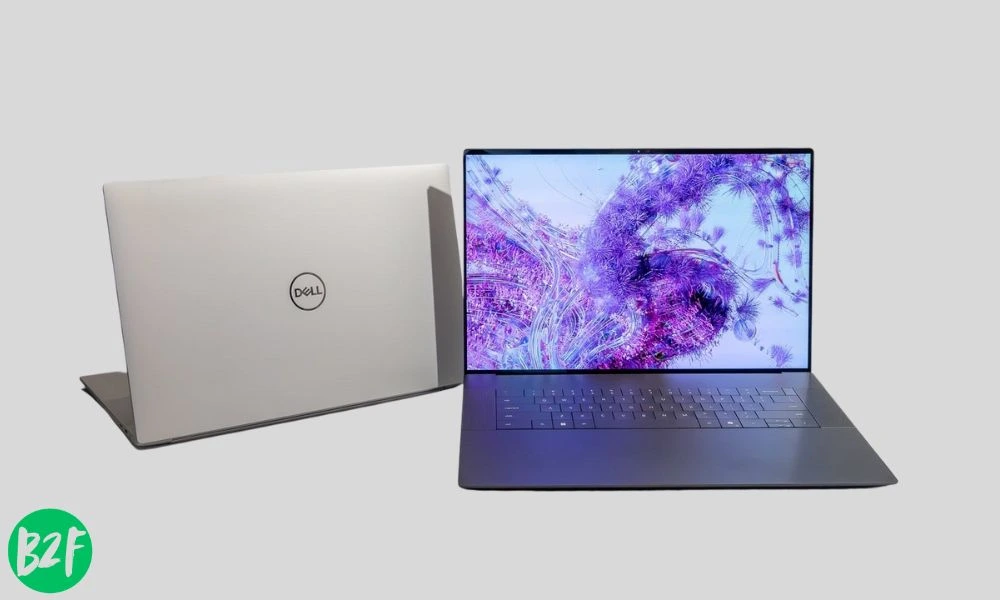
Specification
- Processor: Intel Core i7-13700H
- Graphics: Nvidia GeForce RTX 4070
- RAM: Up to 32GB
- Storage: Up to 1TB SSD
- Display: 16-inch 4K OLED Touchscreen
- Battery Life: Up to 11 hours
- Ports: USB-C, Thunderbolt, HDMI
- Weight: 4.2 lbs
When an engineering student juggles demanding coursework or needs a laptop that can handle complex tasks while still being portable for school. The Dell XPS 16 Review stands out as an ideal option,
offering the perfect balance of performance and versatility. With a 16-inch LCD screen, it’s large enough to view designs and documents comfortably but still easier to carry than many larger models.
What sets the Dell XPS 16 apart is its impressive performance, powered by the Nvidia GeForce RTX 4070 GPU, which ensures smooth graphics rendering for even the most graphics-intensive applications.
The Nvidia GeForce RTX makes it an excellent choice for 3D modeling, simulations, and other engineering software.
If you need something more efficient, the integrated Intel Arc GPU is available for everyday tasks, making this machine versatile enough for various uses. One of the standout features of the Dell XPS 16 is its touchscreen upgrade, which adds an interactive element to the user experience.
Whether using CAD programs, sketching designs, or navigating Windows 11, the touchscreen allows you to interact with your work more intuitively.
Plus, the battery test shows the laptop can last up to 11 hours, so you won’t need to worry about constantly searching for an outlet during long study sessions or while on the go.
If you’re looking for an affordable yet powerful machine, the Dell XPS 16 is a solid choice. It combines hands-on usability, a powerful GPU,
and a nicer design that makes it easy to configure according to your needs, whether it’s for general tasks or specialized engineering student applications.
Pros:
- Sleek design with strong performance, great for engineering students.
- 4K OLED touchscreen and excellent sound quality.
- Upgradeable RAM and storage.
Cons:
- The keyboard lacks responsive feedback, and the touchpad can be imprecise.
- Limited ports and average battery life.
2. Lenovo ThinkPad X1 Carbon Gen 12: A Top Choice for Engineering Students
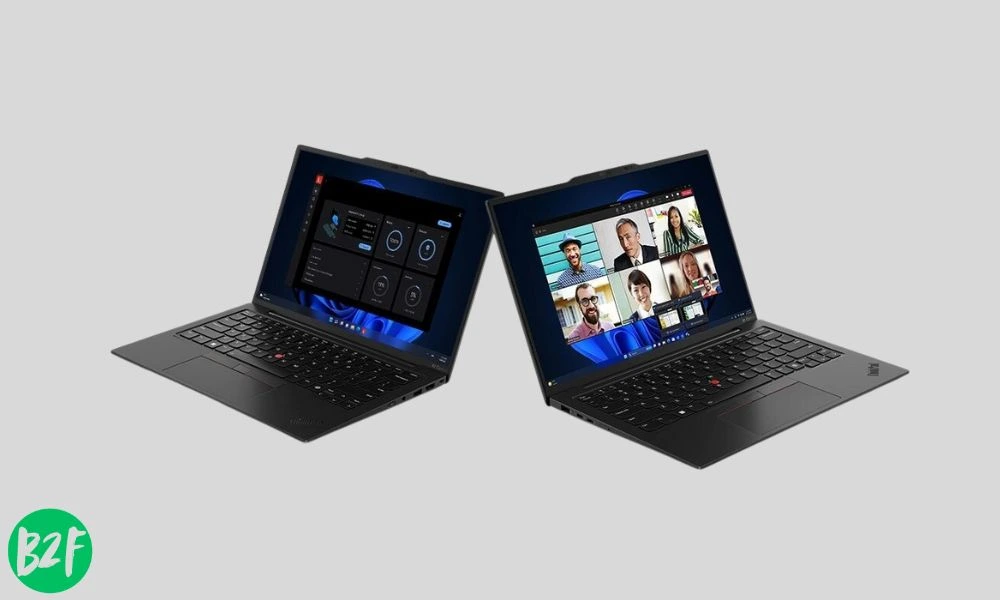
Specification
- Processor: Intel Core Ultra (12th Gen)
- Graphics: Integrated Intel Iris Xe
- RAM: Up to 32GB
- Storage: Up to 1TB SSD
- Display: 14-inch WUXGA (1920 x 1200) OLED
- Battery Life: Up to 12 hours
- Ports: 2 x USB-C, USB-A, HDMI, Ethernet
- Weight: 2.49 lbs
If you’re an engineering student looking for a laptop that combines performance, portability, and Comfort, the Lenovo ThinkPad X1 Carbon Gen 12 might be your next laptop’s top contender.
Its carbon fiber chassis and sleek design make it lightweight and easy to carry around, perfect for frequent travelers or those working in a hybrid environment.
The premium build is aesthetically pleasing and reliable, offering durability that will last through extended work sessions. This robust laptop doesn’t compromise on performance.
Equipped with the latest Intel Core Ultra processors and up to 32GB RAM, it can easily handle even the most demanding business applications. Whether you’re running simulations, drafting designs, or tackling complex business tasks, it delivers powerful performance.
With sharp visuals and a matte Display that minimizes glare, you can work in various lighting conditions without straining your eyes, especially when dealing with dark scenes or intricate details.
However, no laptop is perfect.
The underwhelming webcam might not impress for video calls, and the limited port selection could be a downside for those with multiple peripherals.
Despite its high price tag, the Lenovo ThinkPad X1 Carbon Gen 12 offers excellent battery life of up to 12 hours, allowing you to complete your entire workday without searching for a charger.
Its redesigned keyboard adds Comfort for business users or anyone who needs to type for extended work sessions, making it a versatile choice for multitasking and tackling various business tasks.
Pros:
- Lightweight and portable, great for on-the-go use.
- Sharp OLED Display is ideal for both work and media.
- Long battery life (up to 14 hours).
- Premium build quality with a sleek design.
Cons:
- Limited ports, mostly on one side, which can make multi-device use tricky.
- May lack enough connectivity for users with more peripherals.
3. HP Victus 15 – A Solid Choice for Engineering Students
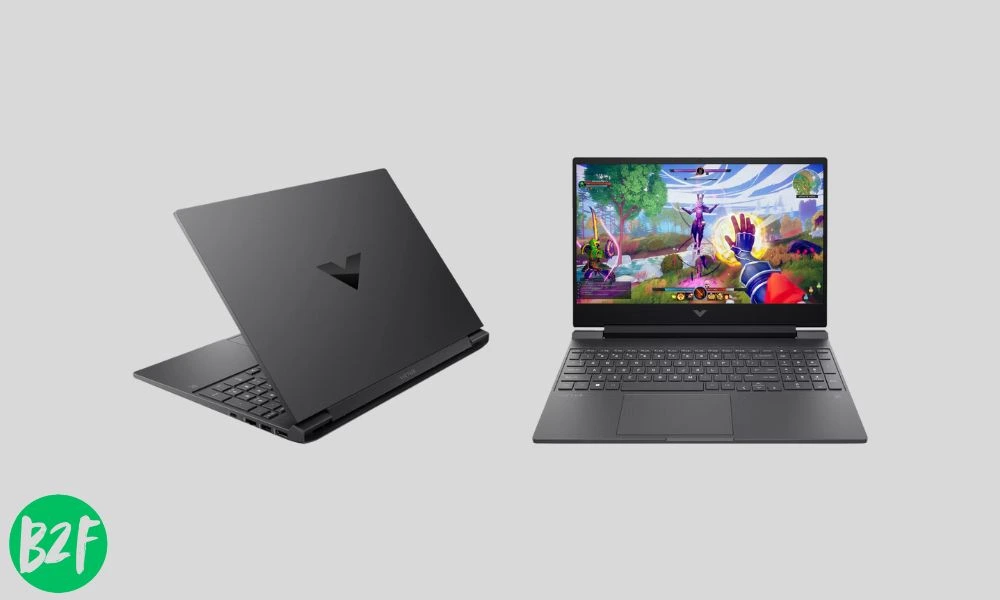
Specification
- Processor: Intel Core i7-1250H
- Graphics: Nvidia GeForce RTX 3050
- RAM: 16GB
- Storage: 512GB SSD
- Display: 15.6-inch FHD (1920 x 1080)
- Battery Life: Up to 4.5 hours
- Ports: USB-C, USB-A, HDMI, Ethernet
- Weight: 5.4 lbs
When searching for an engineering laptop that won’t break the bank, the HP Victus 15 stands out as an excellent budget option. Often considered a desktop replacement,
This gaming laptop has powers that are ideal for handling resource-intensive apps and complex projects typical of engineering courses.
One key feature of the HP Victus 15 is its robust build quality, ensuring it can withstand college life’s demands.
Whether you’re heading to class or staying up late for some testing, this laptop can keep up. It boasts a bright 15.6-inch FHD display with clear visuals, making it easier to work on graphically demanding programs like CAD software or 3D modelling tools.
What sets the HP Victus 15 apart from other cheap laptops is its dual-fan setup and large air vent, which improve air circulation and prevent overheating.
This makes it perfect for long hours of multitasking or running intensive software. While some gaming laptops can have elaborately or overly flashy ‘gamer aesthetic
the HP Victus 15 keeps things simple with a clean, functional design that suits professional and personal use.
For those looking for an affordable yet capable machine, the HP Victus 15 offers RTX-equipped models that provide a discrete GPU, ensuring solid gaming laptop performance for moments of relaxation.
Benchmarks show this laptop performs well in handling engineering student workloads, striking a perfect balance between price and performance.
Pros
- Great performance for gaming and work tasks, ideal for budget-conscious engineering students.
- Good balance of price and performance.
Cons:
- It has a plain design, and it is not very stylish.
- Short battery life (about 4.5 hours), requiring frequent recharges.
4. MSI Cyborg 15: A High-Performance Choice for Engineering Students
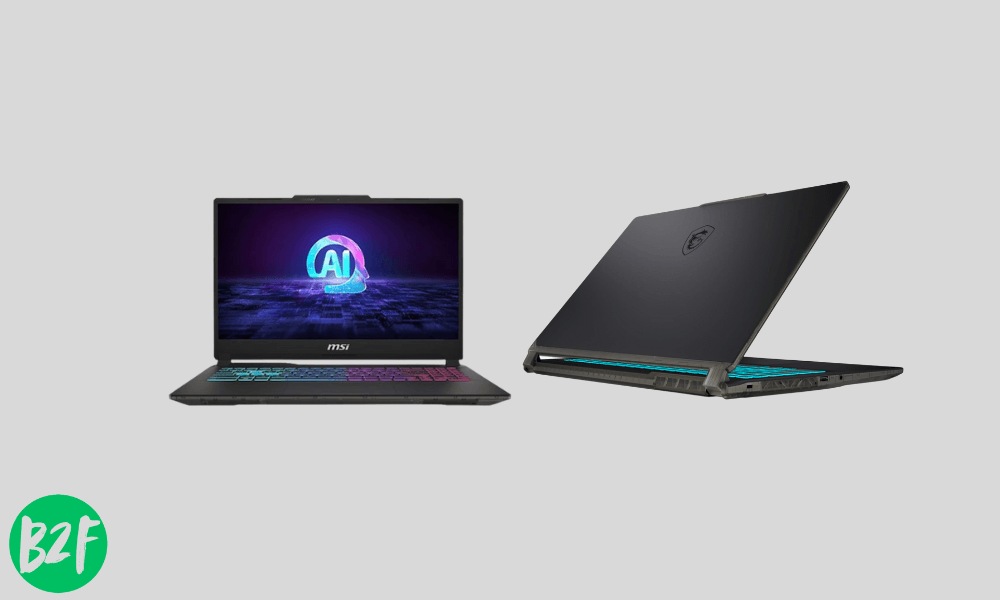
Specification
- Processor: Intel Core i7-13700H
- Graphics: Nvidia RTX 4050
- RAM: 16GB
- Storage: 512GB SSD
- Display: 15.6-inch 144Hz FHD (1920 x 1080)
- Battery Life: Up to 6 hours
- Ports: USB-C, USB-A, HDMI
- Weight: 5.07 lbs
The MSI Cyborg 15 is an excellent option for engineering students who need both gaming and productivity capabilities on a budget. With its 13th Gen Intel Core CPU and Nvidia RTX 4050 GPU, the laptop delivers reliable performance, making it ideal for engineering applications, simulations, and gaming during downtime.
Its 144Hz 15.6-inch Display is perfect for smooth visuals, especially when running software that requires high refresh rates. However, the screen’s brightness and colour vibrancy could improve the viewing experience.
One of the standout features is its design, which blends cyberpunk-inspired aesthetics with practicality. It’s stylish and durable, making it a solid companion for students balancing schoolwork and personal projects.
The laptop’s battery life might not last long on a full charge, but when plugged in, it handles tasks efficiently, making it an excellent value for under $1,000. It’s the kind of laptop that balances power, design, and affordability, perfect for students looking to get the most out of their budget.
Pros:
- Affordable with great value for budget-conscious students.
- Unique, cyberpunk-inspired design.
- Comfortable keyboard for long study sessions.
- Solid gaming performance with RTX 4050 GPU.
Cons:
- Grainy 720p webcam.
- Middling display quality.
- Runs hot during gaming sessions.
5. Asus ROG Strix SCAR 18: A Powerhouse for Engineering Students
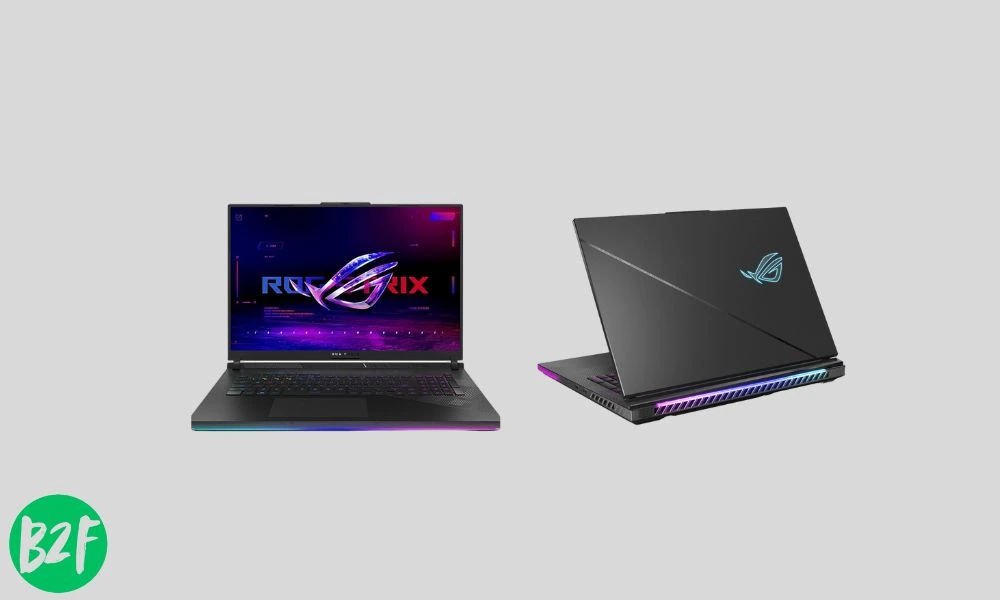
Specification
- Processor: Intel Core i9-13980HX
- Graphics: Nvidia GeForce RTX 4090
- RAM: 32GB
- Storage: 1TB SSD
- Display: 18-inch QHD+ (2560 x 1600) 240Hz
- Battery Life: Up to 5 hours
- Ports: USB-C, USB-A, HDMI, Ethernet
- Weight: 6.83 lbs
If you’re an engineering student needing a laptop that can handle both engineering-related work and the occasional gaming marathons, the Asus ROG Strix SCAR 18 could be one of the finest choices in the market.
This gaming laptop is built with top-tier hardware that’s more than capable of running engineering simulations and demanding software without breaking a sweat.
With its Intel Core i9 processor and high-performance graphics card, the raw processing power ensures smooth performance during heavy multitasking and complex engineering needs.
The 18-inch display offers a large canvas perfect for visuals and working on multiple engineering software programs simultaneously. Its QHD+ displays exceptional visual quality.
Making it easier to work with detailed designs or high-end graphics for your projects. Plus, the 240Hz refresh rate delivers a smooth gaming performance, so when you need a break, you can enjoy demanding games without compromising speed or performance.
However, be mindful of the fan noise that comes with the powerful system cooling needed for gaming power. The advanced cooling system can get a bit loud, but this is typical for gaming laptops under heavy use.
Weighing in at 6 lbs, the Asus ROG Strix SCAR 18 isn’t the most portable laptop, but it balances performance features and usability for those who value gaming and engineering compatibility.
The premium price might be a consideration for some, but it’s a solid investment if you’re looking for a high-end laptop that meets both engineering power and gaming performance.
Pros:
- Top-tier performance, perfect for multitasking and gaming.
- Exceptional 18-inch QHDDisplayay for coding and media.
- Grellentat for engineering students who also game.
Cons:
Expensive, out of reach for budget-conscious students.
Bulky and heavy (6.83 lbs), not ideal for portability.
6. Asus ROG Zephyrus G14: A Compact Powerhouse for Engineering Students
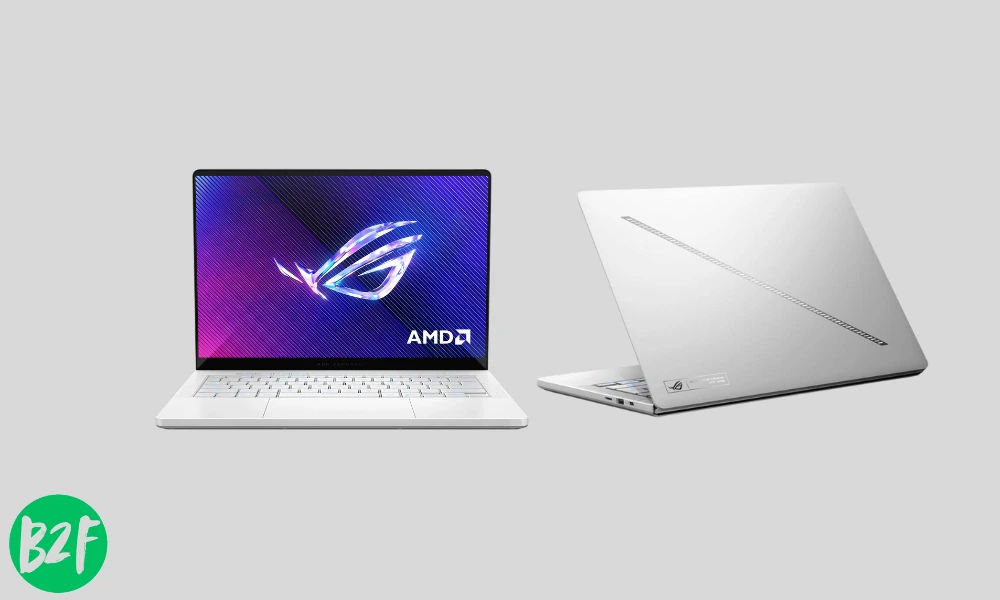
Specification
- Processor: AMD Ryzen 9 8945HS
- Graphics: Nvidia GeForce RTX 4070
- RAM: 16GB
- Storage: 512GB SSD
- Display: 14-inch QHD (2560 x 1600) 120Hz
- Battery Life: Up to 7 hours
- Ports: USB-C, USB-A, HDMI
- Weight: 3.64 lbs
The Asus ROG Zephyrus G14 is a small, powerful gaming laptop perfect for engineering students on a budget. With its AMD Ryzen 9 8945HS processor, this laptop delivers solid performance for both gaming and engineering tasks.
Despite its small chassis, it packs a powerful laptop experience, providing efficient performance without sacrificing gaming power.
With gaming laptop features like 60+ fps at 1080p, you can easily tackle homework assignments, transcoding, and even 4K video editing. In my recent test, I found the G14 to be a highly efficient laptop capable of handling engineering needs while remaining lightweight and portable.
The easy-to-carry chassis makes it ideal for school use. It lasted a full day of classes, but during the battery test, it fell short of a long battery life, offering under 7 hours of battery life during heavy tasks.
However, the good battery life for light work, such as homework assignments, still makes it a worthy option for engineering students who need a compact and efficient machine that doesn’t weigh them down.
Pros:
- Slim and sleek design
- High-quality OLED Display
- Strong performance
- Comfortable typing experience
Cons:
- Short battery life
7. Razer Blade 15: A Powerful Gaming Laptop with Performance Specs

Specification
- Processor: Intel Core i7-12700H
- Graphics: Nvidia GeForce RTX 3070 or 3080
- RAM: 16GB
- Storage: 512GB SSD
- Display: 15.6-inch 4K OLED 144Hz
- Battery Life: Up to 6 hours
- Ports: USB-C, USB-A, HDMI, Ethernet
- Weight: 4.4 lbs
Regarding balancing gaming and engineering, the Razer Blade 15 stands out as a high-performance laptop that engineering students can rely on for demanding workloads. While it’s typically seen as a gaming laptop, it’s much more than that, especially regarding design work and running engineering software.
The 12th-generation Alder Lake Intel CPU paired with the RTX 3000-series graphics card ensures you can power through workloads like AutoCAD or Autodesk software without lag.
The Razer Blade 15’s brushed aluminium chassis gives it a durable yet sleek look, perfect for students who need performance and design features.
Its RGB keyboard and illuminated keyboard enhance the design laptop experience, while the precision glass trackpad offers smooth navigation, making it ideal for coursework and design work.
Plus, with the 4K panel offering a 144Hz refresh rate and 100% DCI-P3 color gamut, the screen quality is top-notch for those needing enhanced visuals for design laptop tasks and graphics-intensive applications.
Despite being a high-end laptop, the Razer Blade 15 is an investment laptop that will stay future-ready for the next few years, providing bang for your buck.
Whether handling graphics-intensive engineering software or engaging in design work, this future-proofed laptop has it all. Its high-quality screen and performance specs can handle demanding course workloads and beyond.
Pros:
- Powerful performance is excellent for gaming and demanding tasks.
- Sleek design with premium features.
Cons:
- High prices may be overkill for budget-conscious students.
- Specs designed for gaming, which might not be necessary for engineering work.
FAQS
What should I look for in a budget laptop for engineering students?
Focus on a laptop with a strong CPU (Intel i5 or higher), at least 8GB of RAM (16GB is ideal), a dedicated GPU, and SSD storage. These features are essential for running demanding engineering software like SolidWorks or AutoCAD smoothly.
Can I use a MacBook for engineering programs? A
Yes, a MacBook with an M1 or M2 chip can handle many engineering tasks. However, some software, like SolidWorks, may not be compatible with macOS. A Windows laptop may be a better choice if you need to run Windows-based programs.
What is the role of the GPU in engineering tasks on a laptop?
A dedicated GPU (Graphics Processing Unit) is essential for handling graphics-intensive tasks like CAD modeling. It ensures smooth performance when using engineering software that requires high graphical power.
How much RAM do I need for engineering software?
For most engineering programs, at least 8GB of RAM is needed, but 16GB is recommended for better multitasking and handling large files. More RAM helps your laptop run multiple programs at once without slowing down.
Should I consider laptop portability for engineering studies?
Portability is essential if you must carry your laptop between classes or work on projects. However, more powerful laptops tend to be heavier. You should balance performance and portability based on your specific needs and how often you carry the computer.
How to Choose the Best Engineering Laptop for You
Portability and Ruggedness
When choosing the best laptop for engineering students, it is important to balance performance with portability. A lightweight frame is essential since you’ll likely carry your laptop between classes, college, and university.
However, don’t sacrifice ruggedness for portability. Your laptop should be able to handle accidental bumps and wear and tear, especially if you’re constantly on the move.
Battery Life
The battery life is another primary consideration. Engineering laptops must be able to handle demanding software such as AutoCAD, MATLAB, or 3D modelling software without draining the battery too quickly.
All-day battery life ensures you can complete tasks like working with large Excel sheets, running graphic-intensive programs,
or viewing a clear Display for hours without searching for an outlet. You want to avoid the frustration of interrupted workflow due to a dead battery during a lecture or project session.
Performance and Processing Power
Regarding performance, your laptop must have a strong processor to handle high-powered applications and complex programs.
Look for laptops with Intel Core i5 or Core i7 chips. These chips provide the best multitasking processors and run advanced operations, such as graphic design software.
Aim for 16GB RAM as a minimum hardware specification. However, 32GB RAM will offer a smoother experience when running multiple applications simultaneously, such as graphic-intensive programs or large CAD windows.
Higher RAM will ensure your machine can handle the simultaneous operation of applications like 3D modeling software without lag.
Screen Resolution and Display Quality
The screen resolution is also essential for your preferred machine. You’ll be working on detailed projects; a clear display is crucial.
A laptop with a 1080p resolution provides an apparent screen size, essential for tasks like extensive navigational mapping services or analyzing design details.
A high-resolution screen will help you avoid eye strain during those long study sessions and enhance your experience working on detailed engineering projects.
Storage and Operating System
Don’t forget to check the storage as well. With 1TB SSD storage, you’ll have more than enough space to store all your important files, from course materials to complex software files.
The Windows operating system is the most common choice among engineering students because it supports various communication tools and software used in the field.
A reliable WiFi connection will help you gather information and stay connected to your peers and professors.
How We Evaluate the Best Laptops for Engineering Students
When we review laptops for engineering students, we follow a rigorous review process to ensure each device meets the demanding requirements of engineering programs.
We aim to find the best laptops for engineering students that provide genuine value for money without compromising on performance.
We conduct real-world and simulated tests to evaluate the laptop’s ability to handle demanding software, such as AutoCAD, SolidWorks, and other engineering applications.
This allows us to identify high-performance machines that can run complex programs without lagging or causing frustrating slowdowns.
We also assess each laptop’s build quality and durability. Engineering students must often carry their laptops to campus, dorms, libraries, and labs, so portability and design are crucial. We look for slim designs and discreet machines that don’t weigh students.
Additionally, screen size and dimensions are essential in selecting the right laptop for portability and productivity. Larger screens provide better workspace, but we also consider how comfortably the computer can be carried.
Whether it’s laptops for architecture, computer science, or MBA students, we prioritize finding devices that combine portability with functionality.
Another critical aspect is the specs comparison. We analyze everything from processor power to RAM and storage capacity, ensuring the laptops can handle engineering programs efficiently. While we want potential devices, we also look for features like fan noise, which can be a distraction during long study sessions.
The ability to work on the move is also important, so we ensure the laptops have entire battery life and port selection for all the devices students might need. Extra features, such as fingerprint sensors or face recognition, are considered if they add to the overall value for money.
We’ve identified the top-rated laptops that combine performance, design, and value for money. We also ensure that these devices provide a comfortable experience, free from distractions like lagging or fan noise, and feature connectivity options that allow students to connect to their peripherals easily.
Our rigorous approach guarantees we recommend only the best engineering laptops that can meet the needs of students, whether they’re studying for exams or working on complex projects.
These laptops for all students provide a balance of performance and design features that cater to different academic needs, including those for engineering, computer science, and even MBA students.



